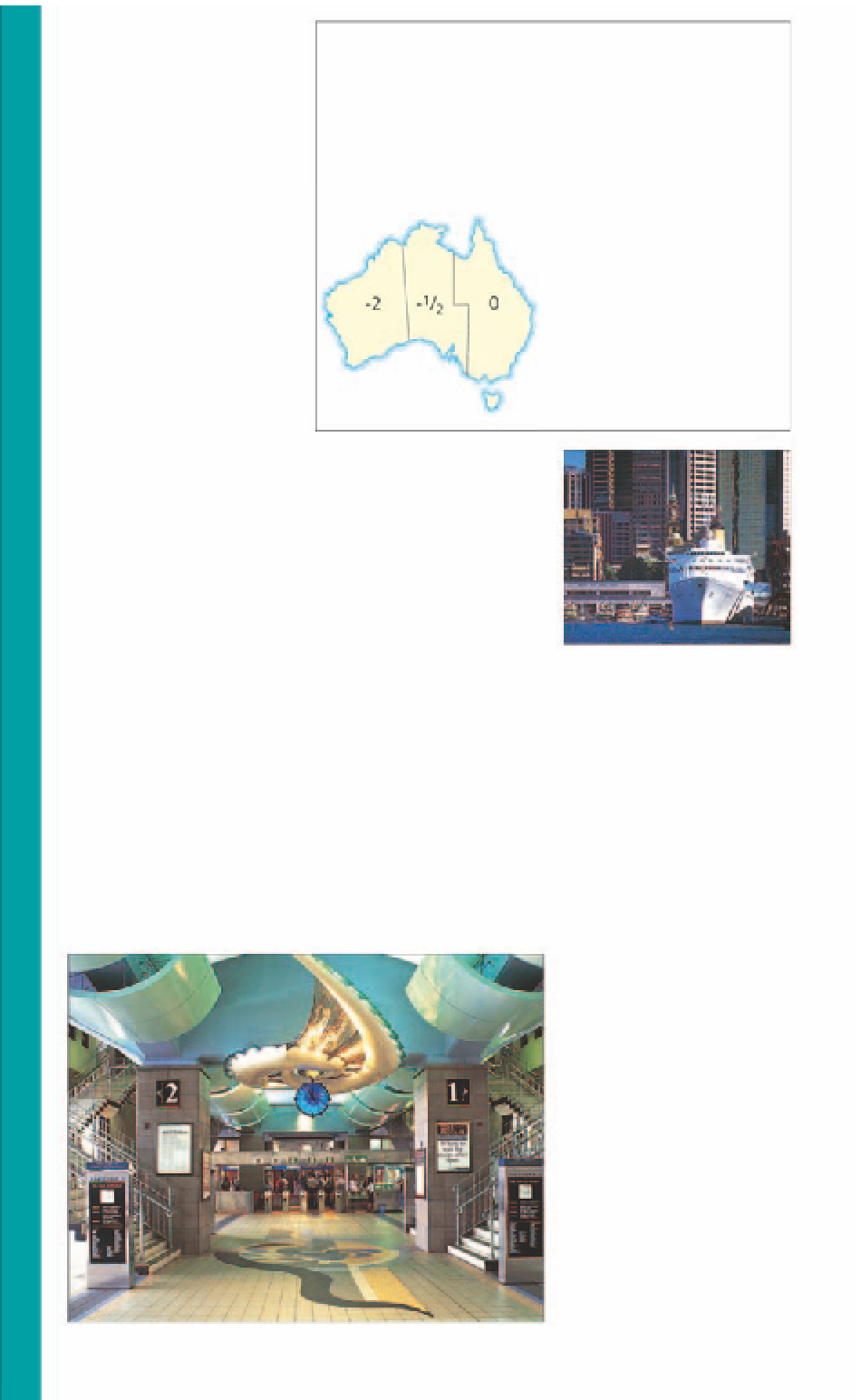Travel Reference
In-Depth Information
DISABLED TRAVELLERS
SYDNEY TIME
Sydney is in the Australian Eastern Standard Time zone
(AEST). Daylight saving in New South Wales starts on the
last Sunday in October and finishes on the last Sunday in
March. The Northern Territory, Queensland and Western
Australia do not observe daylight saving, so check time
differences when you are there.
City and Country
Sydney has made much-
needed advances in catering
for the disabled. State Transit
is phasing in specially
designed buses with doors at
pavement level and ramps that
allow people in wheelchairs
to use the bus service. There
is also priority seating for those
with a disability and bus hand-
rails and steps are marked with
bright yellow paint to assist
visually impaired passengers.
The Circular Quay railway
station is completely accessible
to wheelchair users. Several
other stations have wide
entrance gates and most have
ramps installed. The Transport
Infoline
(see p230)
can give
details on disabled access at
each station.
Museums, newer hotels and
some major sights cater to the
less mobile, including those in
wheelchairs, as well as people
with other disabilities. You are
strongly advised to phone all
sights in advance to check on
facilities, allowing the most
effective forward planning.
For detailed information on
accessible services and venues,
Access Sydney (see p170)
is
available from Spinal Cord
Injuries Australia. A map and
directory for those with
limited mobility can be
obtained from the
Sydney City
Council One-Stop Shop
.
Hours
+ or − AEST
Adelaide (Australia)
−½
Brisbane (Australia)
same
Canberra (Australia)
same
Darwin (Australia)
−½
Hobart (Australia)
same
Melbourne (Australia)
same
Perth (Australia)
−2
London (UK)
−9
Los Angeles (USA)
−17
Singapore
−2
Toronto (Canada)
−14
IMMIGRATION
AND CUSTOMS
All visitors to Australia,
except New Zealand passport
holders, must hold a valid
passport and visa, an onward
ticket and proof they have
sufficient funds for their visit.
However, visitors should
always check requirements
before travelling.
The customs allowance per
person over 18 entering
Australia, is up to the value of
A$900, 2.25 litres (about 3.75
pints) of alcohol and a carton
of 250 cigarettes.
Quarantine regulations in
Australia are strict because of
the debilitating effect that
introduced pests and diseases
would have on agriculture,
and the country's unique flora
and fauna. The importation of
Overseas cruise ship in port at
Circular Quay passenger terminal
fresh or packaged food, fruit,
vegetables, seeds, live plants
and plant products is prohibit-
ed. It is also illegal to bring in
any items or products made
from endangered species.
Because of these restrictions,
all personal luggage, including
hand luggage, is x-rayed
before you can leave the bag-
gage reclaim area. The
penalties for importing illegal
drugs of any sort are severe.
On all international flights
to Sydney, the customs dec-
laration forms issued on the
plane must be filled out and
given to customs officers as
you enter the country. The
practice of spraying the cabin
with insecticide before land-
ing has been discontinued.
Sydney City Council
One-Stop Shop
Town Hall Hse, Sydney Square, 456
Kent St.
Map
4 E3.
Tel
9265 3333.
DEPARTURE TAX
As in many other countries,
Australia has a departure tax.
All passengers aged 12 or
over are required to pay a
departure tax when leaving
the country. This tax is usually
included in the cost of your
airline ticket.
Entrance gates with wheelchair access at Circular Quay railway station







































